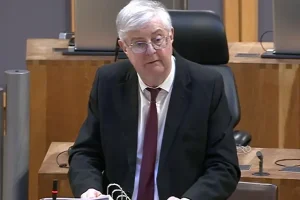The average price of a pint in the UK is projected to surpass the £5 mark for the first time next month, as pubs grapple with escalating operational costs stemming from recent government fiscal policies.
According to research conducted by Frontier Economics on behalf of the British Beer and Pub Association (BBPA), the typical price of a pint, currently averaging £4.80, is expected to rise by approximately 21p to £5.01 in April.
This increase is primarily attributed to a series of cost hikes introduced in last year’s Budget, set to take effect in April. Key measures contributing to the financial strain on pubs include:
- Higher Employer National Insurance Contributions (NICs): From April, employer NICs will rise from 13.8% to 15%, and the threshold for these contributions will decrease from £9,100 to £5,000.
- Increased National Minimum and Living Wages: The national minimum wage is set to rise by 77p to £12.21 an hour, significantly impacting labour costs for pub operators.
- Reduced Business Rates Relief: Business rates relief for hospitality firms will decrease from 75% to 40%, adding further financial pressure.
Collectively, these measures are estimated to impose an additional £650 million in costs on the pub sector. The BBPA warns that, despite some relief from reduced energy bills and a modest cut in draught beer duty, these new charges are substantial enough to compel many pubs to increase prices to maintain viability.
Emma McClarkin, Chief Executive of the BBPA, expressed concern over the impact of these fiscal changes on the pub industry, stating: “No one wants to see the cost of an average pint increase by a further 21p and break the £5 average pint barrier.” She emphasised the urgency for government intervention to alleviate the financial burdens on pubs, highlighting the risk to livelihoods and the cultural significance of these establishments.
The impending price increase also raises concerns about the broader economic implications, particularly regarding inflation and consumer spending. As pubs adjust to these heightened costs, patrons may face reduced choices and higher prices, potentially impacting the social fabric of communities that rely on these venues as communal gathering spaces.
In response to these challenges, industry leaders are calling on the government to reassess the recent fiscal policies affecting the hospitality sector. The aim is to find a balance that supports public finances without undermining the viability of pubs and the affordability of pints for consumers.














